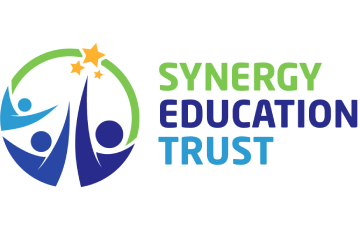EYFS
The Early Years Curriculum supports the children’s’ emotional, social and academic development. At Boundary, we aim to provide a stimulating and exciting environment for the children to develop the early skills they need through a range of creative activities such as mark making, malleable, technology, constructing and building, exploring, problem-solving and physical development both inside and outside the classroom. These approaches help the children to develop independence, the skills of problem-solving and critical thinking. The children will be taught key skills in reading, writing and mathematics through child-initiated play and focused led activities.
To see our Nursery and Reception class pages, please click here.
To view our Early Years Foundation Stage Policy, please click here.
|
|
 |
 |
At Boundary Primary School our school curriculum has been designed based on our four main school curriculum drivers plus one EYFS specific driver;

As an EYFS unit we follow the EYFS framework which splits the curriculum up into 7 areas of learning.
We use the Chris Quigley Curriculum Companion to support the planning and delivery the EYFS Framework planning.

Nursery Rhymes in the Early Years
Nursery rhymes are designed to help develop children’s vocabulary, oracy and confidence. These are important skills, which will help children when they start to learn to read. They are a powerful learning resource in early literacy in identifying rhythm and patterns of language. The bouncy rhymes catch the children attention and provide bite-sized learning opportunities for young children to develop key skills. The repetition and familiarity helps children to develop their long
term memory and supports language development, whilst engaging a child foster their social development and interactions.
Communication and Language Development
Rhymes are fantastic vocabulary booster. They often feature a pleasing rhymic pattern and simple repetitive phrases that
young children find easy to remember. In order to successfully develop phonological awareness, children need to be
repeatedly exposed to spoken language and nursery rhymes provide the perfect what to do this. They also create great
oportunites for speaking, listening and attention.
Physical Development
Action songs encourage children to develop their fine and gross motor control skills as well as balance and co-ordination
skills needed to follow simple instructions.
Number Opportunities
Many rhymes also contain counting, helping children to familiarise with numbers in a fun and interactive way.
EYFS Nursery Rhymes and Rhymes Yearly Overview
These are the nursery rhymes, rhymes and songs that the children in EYFS will learn throughout the year.
Nursery
|
Autumn 1 |
Autumn 2 |
Spring 1 |
Spring 2 |
Summer 1 |
Summer 2 |
|
Incy Wincy Spider Where’s the dinosaur? |
Hickory Dickory Dock Autumn Leaves |
Twinkle Twinkle Little Star We’re going on a bear hunt |
The wheels on the bus How to be a superhero |
Mary, Mary quite contrary There’s a tiny caterpillar on my hand |
Humpty Dumpty We’re all going on a summer holiday |
Reception
|
Autumn 1 |
Autumn 2 |
Spring 1 |
Spring 2 |
Summer 1 |
Summer 2 |
|
1, 2, 3, 4,5 Once I caught a fish alive Five Little Speckled Frogs |
5 Currant Buns
The Gruffalo Song |
Goldilocks rhyme Have you ever seen a penguin come to tea |
Hey Diddle Diddle Walking through the jungle |
Five Little Ducks Five Little Peas
|
Old Mother Hubbard Oh I do like to be beside the seaside
|


